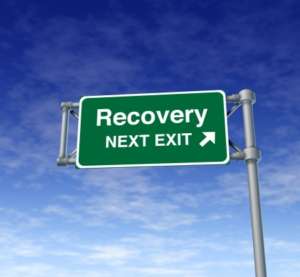10 Signs Your Teen May Need to Visit a Drug Rehab
Visions Adolescent Treatment Centers was founded in 2002 to provide cutting edge mental health, substance abuse and family treatment. Society today makes the teenage years more difficult due to social network, peer pressure and easy access to drugs. Youths ages 13 to 18 years old from southern California, big cities like New York City, Chicago and international countries have turned to Visions Centers for extensive clinically-based treatment in teen drug rehab. 
Children under the age of 18 years old are in a crucial stage of physical and mental development. To be accepted in the eye of the public, some turn to drugs to face a difficult reality. What usually starts as an experiment turns into a so called necessity. Visions Adolescent Treatment Centers teen drug rehab helps in dealing with the compound of problems brought on by drug use.
Not all symptoms are the same in addicts but there a few signs to look out for in a drug abuser.
Relationships
A sudden change in relationships is a common sign of trouble. The teen changes friends, drops old friends or befriends the wrong people. Being secretive about friends can be an indication of problems. Children tend to be secretive but always keeping the bedroom door locked and slipping into seclusion could mean a hidden agenda. Suspicious behavior in an adolescent should not be taken lightly.
Mood Swings
Unexplained changes in personality, attitude or mood swings is a normal teenage behavior. Drastic changes in behavior such as exhilarating highs and depressive lows require medical attention. It could be a result of other problems. Irritability and angry outbursts should be observed.
Loss of Interest
Sudden change in hobbies and favorite hangouts. Monitor the child’s interests and notice any change in activities.
Violence
Frequent trouble with school, work, the law or fights with friends is a warning sign. A child easily agitated, picks a fight or suddenly begins to disobey the authority should not be dismissed.
Paraphernalia
Regular inspection of the child’s possessions may appear as an invasion of privacy. It is nothing more than good parenting making sure the child does not possess any harmful devices. Check the child’s room and bags for suspicious items such as syringes, rolling papers, butane lighters, unexplained pipes or other makeshift smoking apparatus. Do not forget to check pockets of clothes in the closet and elsewhere.
Physical Health
A lack of energy or motivation may be an indication of drug use. Some health issues may include nosebleeds, runny nose, excessive coughs and bronchitis, dental problems, red eyes and loss in weight among other things.
Eating Pattern
Change in eating pattern. Eating more or eating less than usual. Foraging the refrigerator in the middle of the night. Look out for weight gain or a huge weight loss. Sit down for a family dinner and watch the child’s eating behavior.
Neglected Appearance
Unexpected changes in clothing and grooming habits. An adolescent that once took interest in being well dressed in public now has no interest in looking good may be a sign of drug abuse. Teens are usually concerned with appearance. Notice if the child leaves home unkempt.
Sleeping Pattern
Change in sleeping habits. Sleeping more than usual or less than before. Napping during the day when the child does not usually engage in such activity. A youth that appears tired or sleepy most of the day may require intervention.
Problems in school
Skipping class frequently or skipping school in general. Suddenly showing no interest in school or school activities. An adolescent with declining grades and frequent fights or regularly getting into trouble may need teen drug rehab.
Visions Adolescent Treatment Centers offers Residential Treatment, Outpatient Counseling and Adolescent Day School which provide teen drug rehab. A Medical Doctor specializing in teen substance abuse performs the initial diagnosis.
Visions Residential is located in the hills of Malibu, California on a 25 acre gated community. A Mediterranean style dwelling with a home-like setting is surrounded by the beauty of nature.
Patients stay between 45 to 90 days and are housed in separate sleeping quarters for male and female patients with two in a room. Supervision is broken down to day and evening staff with crisis intervention available on a 24 hour basis.
A Program Director supervises all counseling services at the teen drug rehab. Psychologists conduct psychological testings upon admission. A Licensed Therapist and Counselor work with the adolescent throughout the treatment process. A Registered Dietician plans meals with appropriate caloric intake. An Equine Therapist uses horses to help the child in identifying and recognizing feelings. Art Therapists aid in creating interpretive art for use in the treatment plan.
Other treatment members involved in the teen drug rehab as required;
- Psychiatrist
- Supervising Nurse
- Dialectical Behavior Therapy (DBT) informed programming
Visions Residential goals in teen drug rehab are:
- Facilitate the adolescent in identifying situations that lead to drug use and understanding that drugs are not effective in coping.
- Assist with the psychological and psychiatric needs of the child.
- Introduce the 12-step philosophy.
- Encourage and motivate the youth to achieve and sustain a healthy lifestyle.
Visions residential provides schooling on weekdays and an Activities Director leads the patients in a customized physical fitness program 5 times a week for 1 hour. Family-focused therapy is held for a minimum of five hours a week.
Visions Residential is a private pay program and full payment is required from the family. Our team will assist with insurance benefit verification & utilization review.
Visions Outpatient Counseling has two Los Angeles locations that administer solution-based programs in teen drug rehab. Sessions are held 4 PM to 9 PM with Wednesday for rest. 
1st Step program
- Introduction to the beginning of a recovery process.
- Guides parents through the child’s new lifestyle.
- Helps reintegrate youths and families into everyday life after long term treatment.
Visions’ intensive Outpatient
- 2nd step of the recovery process.
- Address existing psychiatric and/or therapeutic needs of the patient.
- Develop a firm foundation of support within society.
A Discharge Plan provides continued care developed by the Counselor prior to leaving the teen drug rehab.
Visions Outpatient works out of network with insurance. We will provide the following services to our Outpatient families: Benefit Verification, Pre-Authorization, Utilization Review, Billing & Collections.
Visions Alumni Program, The Fourth Dimension, is a voluntary enrollment benefit after completion of the Residential and Outpatient programs for teen drug rehab. Adolescents are encouraged to attend aftercare and self-help groups twice a week.
Visions Day School administers treatment for teen drug rehab while providing a safe environment for students. Open enrollment offers remedial to honor level education. School hours are 9 AM to 3 PM.
Other program highlights include:
- WASC Accredited Curriculum (Western Association of Schools and Colleges)
- Individualized Educational Planning
- Direct Access to Teachers
- 3 to 1 Students to Staff Ratio
- Individualized 1 on 1 Instructions
Visions Adolescent teen drug rehab graduates who sought out higher education were able to continue on to esteemed colleges and universities.
Do not be afraid to ask the youth probing questions. Engage in a heart-to-heart conversation with the child. If the listed warning signs do appear, seek help immediately for the adolescent.
Please click below to schedule your consultation regarding teen drug rehab or call us at 866-889-3655






